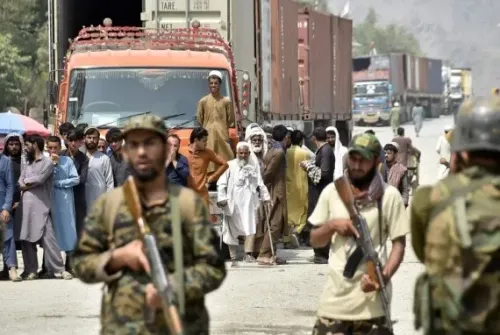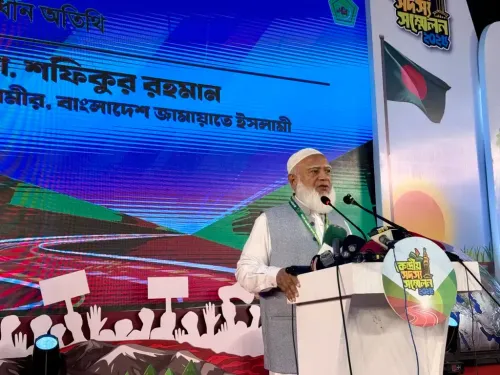Will the Indian Delegation Honor Victims of the Air India 'Kanishka' Bombing Today?

Synopsis
Key Takeaways
- Commemoration of the 40th anniversary of the Air India 'Kanishka' bombing.
- High-level Indian delegation led by Union Minister Hardeep Singh Puri.
- Memorial service held at the Ahakista Memorial in Cork, Ireland.
- International dignitaries present, emphasizing global solidarity against terrorism.
- Recognition of the need for zero tolerance towards violent extremism.
Cork (Ireland), June 23 (NationPress) - In remembrance of the 40th anniversary of the tragic 1985 Air India 'Kanishka' bombing, a distinguished Indian delegation led by Union Minister Hardeep Singh Puri will attend a memorial service on Monday at the Ahakista Memorial in Cork, Ireland.
The delegation features BJP National General Secretary Tarun Chugh and elected officials from five Indian states: Arvinder Singh Lovely (Delhi MLA), Baldev Singh Aulakh (Minister from Uttar Pradesh), Gurveer Singh Brar (MLA from Rajasthan), Trilok Singh Cheema (MLA from Uttarakhand), and Narinder Singh Raina (MLA from Jammu and Kashmir).
This memorial event will take place at the memorial site with the presence of Ireland's Prime Minister Micheal Martin, Canadian Minister Gary Anandasangaree, and several international dignitaries.
On June 23, 1985, Air India Flight 182, which was traveling from Montreal to Mumbai with stops in London and Delhi, was tragically destroyed mid-flight over the Atlantic Ocean due to a bomb explosion in its cargo hold.
The Boeing 747, named after Emperor Kanishka of the Kushan dynasty, had recently made a scheduled stop at Montreal's Mirabel airport to pick up additional passengers.
Shortly after resuming its flight toward London Heathrow, the aircraft disappeared from radar after contacting Shannon Air Traffic Control in Ireland.
The explosion occurred off the Irish coast, claiming the lives of all 329 individuals on board, including 22 crew members. Investigations revealed that the bomb was hidden in luggage originating from Vancouver, indicating a transnational terrorist plot.
The attack was primarily linked to the Khalistani extremist group Babbar Khalsa. Inderjit Singh Reyat, a British-Canadian national, admitted to his involvement in assembling the bomb in 2003.
A key conspirator, Talwinder Singh Parmar, a founding member of Babbar Khalsa, is believed to have orchestrated the attack.
Earlier, External Affairs Minister S. Jaishankar paid tribute to the 329 victims of this devastating act of aviation terrorism.
He highlighted the necessity for a global approach of zero tolerance towards terrorism and violent extremism, emphasizing that this tragedy serves as a grim reminder of the dangers posed by such ideologies.
"On the 40th anniversary of the Air India 182 'Kanishka' bombing, we commemorate the memory of the 329 lives lost in one of the most catastrophic acts of terrorism. This serves as a crucial reminder for the world to maintain zero tolerance towards terrorism and violent extremism," Jaishankar stated on X.










